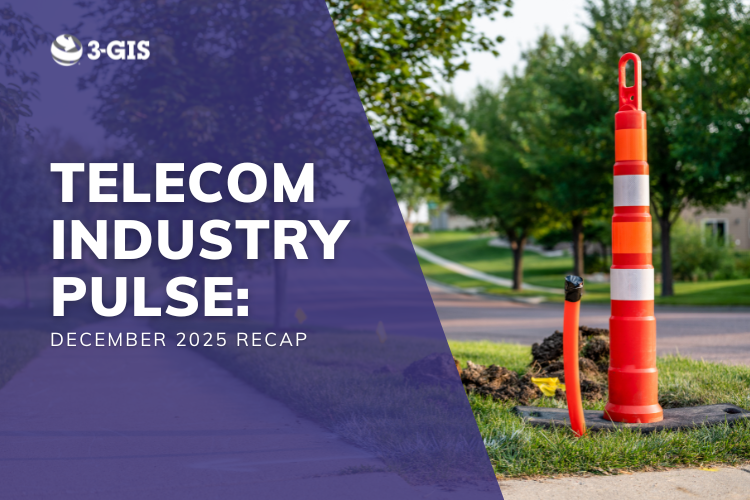Network news roundup
June was anything but quiet for telecom. Policy shakeups from NTIA are reshaping how $42.5 billion in BEAD funding can be used, fiber expansion continues in rural markets, and new AI-related bills are tying broadband dollars to regulation. Add in growing sentiment for fiber in underserved areas and a big acquisition in Virginia—and it’s clear the landscape is shifting fast.
Policy & regulation
NTIA rewrites the BEAD rulebook—fiber preference removed
On June 6, the NTIA released a sweeping restructuring notice for the $42.45B BEAD Program. The policy eliminates many previous requirements—like climate plans, labor mandates, and fiber-only project prioritization—calling them non-statutory and counterproductive. BEAD funding is now open to any technology that meets speed and latency thresholds, including unlicensed wireless and LEO satellite. States must now hold a new “Benefit of the Bargain” grant round and rescore all proposals to prioritize cost-efficiency and speed to deployment.
Read more
Senate bill proposes tying BEAD funds to AI transparency
A bipartisan group of senators introduced legislation that would link BEAD disbursements to how broadband providers use AI. The bill would require reporting on algorithmic decisions tied to pricing, service quality, or network throttling. While framed as a transparency move, some see it as a potential delay for deployments already slowed by regulatory complexity.
Read more
UK passes new data access law—could it ripple across telecom?
The UK has enacted the Data Use and Access Bill, expanding how telcos and other organizations can share and monetize consumer data. Though a UK law, its passage is expected to influence conversations around cross-border data governance and regulatory harmonization, especially for global providers.
Read more
Fiber expansion & infrastructure
Underserved Americans still want fiber—even if it costs more
A new report from RVA LLC and the Fiber Broadband Association shows that underserved rural Americans overwhelmingly see fiber as the most reliable and future-ready broadband option. Even when presented with cheaper alternatives, fiber consistently ranked highest in consumer preference, with 63% saying they’d wait longer or pay more for it.
Read more
T-Mobile’s fiber moves may strengthen its fixed wireless game
According to new analyst reports, T-Mobile’s fiber buildouts aren’t just about fiber—they’re a long-term hedge to support its growing 5G fixed wireless business. As backhaul demand rises and competition heats up, owning fiber infrastructure gives the wireless giant more control over performance and costs.
Read more
Shentel expands Glo Fiber footprint with Virginia acquisition
Shenandoah Telecommunications (Shentel) announced its acquisition of Blacksburg Broadband LLC, a move that adds fiber coverage across multiple southwestern Virginia communities. The deal is part of a broader Glo Fiber expansion strategy aimed at competitive edge in mid-size metros.
Read more
Kinetic breaks ground on $8M fiber project in North Carolina
Kinetic by Windstream has launched construction on an $8 million fiber expansion across four North Carolina counties: Nash, Franklin, Johnston, and Wilson. The project will bring gigabit internet service to more than 3,000 homes and businesses, with completion targeted by year-end. This investment is part of Kinetic’s larger effort to reach underserved communities and was made possible through a public-private partnership with the state’s Growing Rural Economies with Access to Technology (GREAT) grant program.
Read more
Global leadership & strategy
FTTH Council Europe signals new direction with leadership shakeup
At its Spring General Assembly, the FTTH Council Europe elected a new board and announced plans to sharpen its strategic vision. The group emphasized aligning its goals with the EU’s “Digital Decade” targets, pushing for clearer guidance on funding access, and stronger collaboration across member countries.
Read more
Numbers worth noting
- $42.45 billion — Total funding under the BEAD Program now subject to new rules
- 63% — Share of underserved U.S. rural residents who prefer fiber over other broadband options
- 10 days — New service initiation requirement for BEAD-funded installs
- $200,000 — Per-location BEAD cost threshold set by Nevada under the old rules—now under scrutiny
- 4 years — Max deployment timeline for any BEAD project, regardless of tech
For the latest telecom updates, follow us on LinkedIn.




